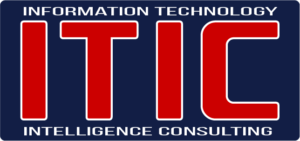Thanks to the 300 of you who took time out of your busy schedules to respond to the joint ITIC/GFI survey on customer relationship management and for OSF-Global in assisting us in composing the questions.
The survey results showed that nearly three-quarters – 74% — of companies are currently using a CRM solution and 57% of survey participants revealed that interest in CRM is increasing significantly. And perhaps most surprising, a 52% majority of survey respondents said they use more than 51% of their CRM solution’s functionality; of that number 18% utilize over 75% of CRM features.
CRM Usage Soars Among SMBs and SMEs
Customer relationship management (CRM) solutions long a staple in large enterprises are now also being widely embraced and deployed by small and mid-sized businesses to more efficiently track and manage businesses’ interactions with customers and partners.
The survey addressed broad ranging issues including CRM deployment trends, timetables and specific vendor products; the issues that propel and/or impede CRM deployment and usage; the types of CRM deployed: On-premise, SaaS, cloud or a combination and the benefits derived from a CRM solution by the company as well as the company’s customers
Overall, the survey results indicate that there is continued widespread support for and adoption of, CRM solutions. Half of the survey respondents – 50% — said they are analyzing or evaluating CRM solutions with an eye towards adoption while another 20% indicated they plan to install a CRM solution within the next six to 12 months. Interestingly, 26% of the survey participants indicated they’ve used a CRM solution for over 10 years. Ironically, an equal 26% of respondents revealed they do not currently use CRM.
Nearly three-quarters or 73% of the 74% of businesses that currently utilize a CRM solution reported that deployment and maintenance generally been smooth and free of any major deployment and maintenance problems. Some 26% of survey participants said they encountered “no problems” while another 47% of participants said they encountered only the “usual migration issues associated with new deployments.”
Survey Highlights
Among the other survey highlights:
- Among the 26% of respondents who are not currently using a CRM solution, the main impediments are:
- Cost – 57%
- No compelling business reason – 50%
- Unsure of what value it would provide – 50%
- Complexity – 43%
- Salesforce.com; Sage, Microsoft Dynamics, Sugar CRM and Oracle/Siebel were the most popular CRMs
- A 57% majority of participants said they are using or plan to deploy an on-premise CRM. This was followed by 18% of firms that indicated they are or will deploy a cloud-based CRM solution; 10% who say they are using or will implement a SaaS CRM and 15% who will use a combination of on-premises, cloud or SaaS CRM solution.
- An 86% majority of respondents cited Features/performance as the factor that most influenced their CRM purchasing decision. This was followed by 74% of respondents who checked off cost; while 71% said Ease of Use influenced their purchasing decision.
- Six out of 10 companies – 60% use only internal IT resources to deploy their CRMs; 31% use a combination of internal resources and external consultants or Systems Integrators
- A 52% majority of survey participants said they use >51% of their CRM solution’s functionality; of that number 18% utilize >75% of CRM features
- Nearly two-thirds of respondents – 62% — say that “upper management leads by example, using CRM, touting its benefits” in order to encourage employee usage
- On-premise CRM is the most popular choice among 57% of respondents
As with any poll, the survey did elicit some surprises. Foremost among these was the fact that organizations utilize a higher percentage of the inherent CRM solution’s functionality than previously thought. There is a long held perception that a significant portion of corporate end users find CRM packages too complex and fail to take full advantage of their features or avoid using them altogether. Failure to use a CRM solution not only squanders the corporation’s investment in the technology but it can also result in less efficiencies in tracking and managing customer relationships, with the unhappy consequence of making the end users less productive and their companies less competitive.
The survey findings contradicted those perceptions. A 52% majority of participants said that their businesses used 50% or more of their CRM’s functionality. However none of the respondents said they utilized “all” of the CRM’s functions. And nearly two-thirds or 60% of survey respondents indicated that in order to maximize CRM usage within the organization, senior executives lead by example and use it themselves.
As with any technology, CRM does present some challenges for would-be adopters. Foremost among these are: cost, complexity, ease of use and ease of manageability. Over half of the respondents revealed that they were using the “CRM-like” capabilities within Microsoft Office to achieve baseline CRM functions.
